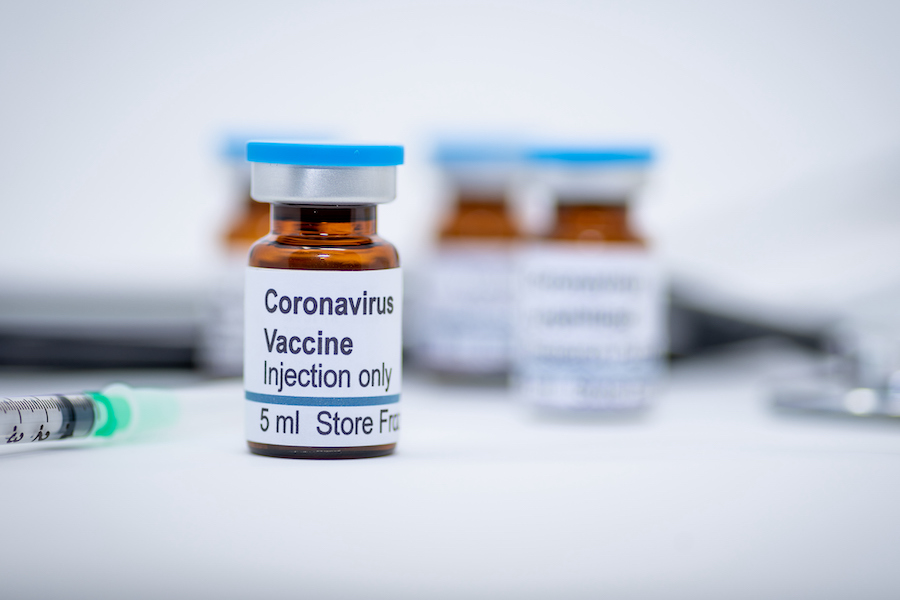
The Center for Infectious Disease Research and Policy (CIDRAP) at the University of Minnesota announced today that it has received grants from The Rockefeller Foundation and the Bill & Melinda Gates Foundation to create a Coronavirus Vaccines Research and Development (R&D) Roadmap aimed at developing broadly protective vaccines against betacoronaviruses, which predominantly circulate in bats and rodents and can “spill over” to human populations.
“We know that current vaccines may not protect against future variants of SARS-CoV-2, the virus responsible for the COVID-19 pandemic,” said Michael T. Osterholm, University of Minnesota Regents Professor, McKnight Presidential Endowed Chair in Public Health and director of CIDRAP. “Furthermore, we know there are hundreds of other coronaviruses circulating in natural reservoirs, such as bats. It’s only a matter of time before another coronavirus spills over into human populations. A coronavirus vaccines roadmap will provide a framework for the development of broadly protective coronavirus vaccines to ensure that we are prepared to respond to SARS-CoV-2 variants and the emergence of future coronaviruses with pandemic potential.”
While the World Health Organization (WHO) is taking the lead on providing global coordination for R&D related to broadly protective coronavirus vaccines, this roadmap can serve as an additional tool to define research priorities and to make it easier to track progress over time. The roadmap aims to clarify specific goals and milestones for R&D, which may include:
- Identifying the critical immunological considerations for developing broadly protective betacoronavirus vaccines.
- Determining strategies for conducting clinical trials involving broadly protective betacoronavirus vaccines that use different vaccine platforms.
- Identifying research needs toward developing broadly protective betacoronavirus vaccines, such as ensuring the availability of a relevant panel of betacoronaviruses; generating standardized reagents and immunoassays; identifying relevant animal models of infection; and ensuring availability of clinical samples from relevant geographies, including low- and middle-income countries.
- Clarifying the ongoing regulatory challenges for future broadly protective betacoronavirus vaccines.
- Identifying issues to address the long-term costs and financing of global coronavirus vaccination programs.
To inform roadmap development and facilitate collaboration and consensus among a wide range of stakeholders, an expert steering group will guide the project. Additionally, a task force of about 30 members will be invited to participate in the development process to ensure that key areas of expertise are included. Lastly, there will be a public comment period to allow input from a diverse group of stakeholders. A final draft of the Coronavirus Vaccines R&D Roadmap will be created after the public comment period, with a near-final draft available by the end of the year.
“Development of an R&D roadmap requires input and buy-in from the best and the brightest scientists and stakeholders from around the globe,” said Osterholm. “We are working to identify and engage those critical partners now as we embark on this project.”
CIDRAP is a global leader in addressing public health preparedness and emerging infectious disease response. CIDRAP most recently released the Influenza Vaccines R&D Roadmap, which was funded by the Wellcome Trust and developed with a group of international partners, to accelerate the development of improved seasonal influenza vaccines and the generation of broadly protective or universal influenza vaccines that could mitigate the impact of future influenza pandemics. CIDRAP has also generated for the WHO roadmaps for medical countermeasures against Ebola/Marburg, Lassa, Nipah, and Zika viruses.
-30-
About the Center for Infectious Disease Research and Policy
CIDRAP is a global leader in addressing public health preparedness and emerging infectious disease response. Founded in 2001, CIDRAP is part of the Office of the Vice President for Research at the University of Minnesota.
- Categories:
- Health
- Infectious diseases




